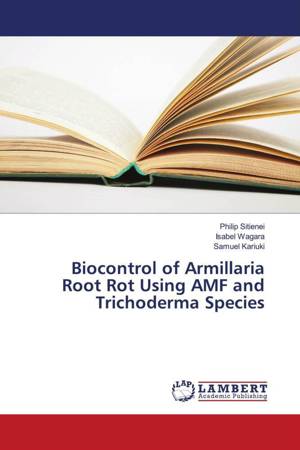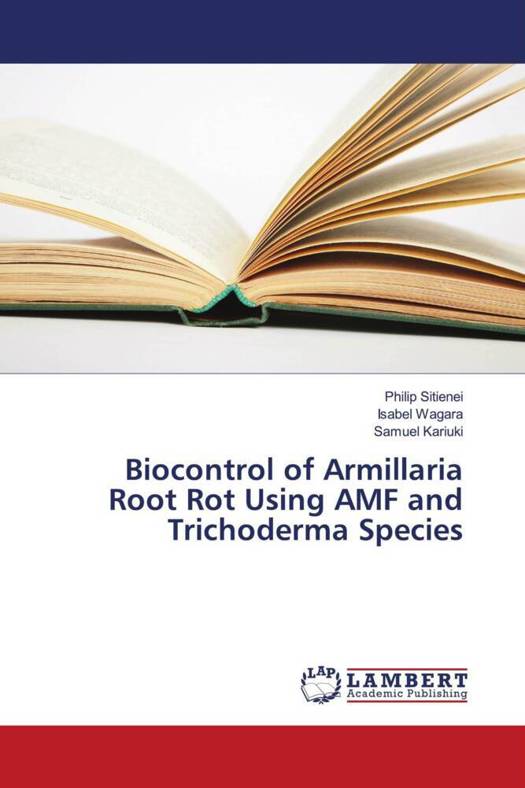
- Afhalen na 1 uur in een winkel met voorraad
- Gratis thuislevering in België vanaf € 30
- Ruim aanbod met 7 miljoen producten
- Afhalen na 1 uur in een winkel met voorraad
- Gratis thuislevering in België vanaf € 30
- Ruim aanbod met 7 miljoen producten
Zoeken
Biocontrol of Armillaria Root Rot Using AMF and Trichoderma Species
Philip Sitienei, Isabel Wagara, Samuel Kariuki
Paperback | Engels
€ 49,45
+ 98 punten
Omschrijving
Mau Forest Complex is of critical importance for sustaining current and future ecological, social and economic development in Kenya. Mau Forest Complex is highly degraded and tree planting has been highly advocated. However, there is a threat to establishment of the seedlings by Armillaria species. The research focused on biological control of armillaria root rot of selected indigenous trees of Mau Forest Complex using arbuscular mycorrhizae fungi and Trichoderma species. Two fungal biological control agents, Trichoderma species and arbuscular mycorrhizae fungi, were applied individually and in combination in laboratory-based research and green house conditions to test their efficacy in controlling armillaria root rot. Microscopic analysis of the mycorrhizal status of the selected indigenous trees from Mau forest complex showed that all the ten plant species were colonized by arbuscular mycorrhizae fungi.
Specificaties
Betrokkenen
- Auteur(s):
- Uitgeverij:
Inhoud
- Aantal bladzijden:
- 116
- Taal:
- Engels
Eigenschappen
- Productcode (EAN):
- 9783659918452
- Uitvoering:
- Paperback
- Afmetingen:
- 150 mm x 220 mm
- Gewicht:
- 191 g

Alleen bij Standaard Boekhandel
+ 98 punten op je klantenkaart van Standaard Boekhandel
Beoordelingen
We publiceren alleen reviews die voldoen aan de voorwaarden voor reviews. Bekijk onze voorwaarden voor reviews.







